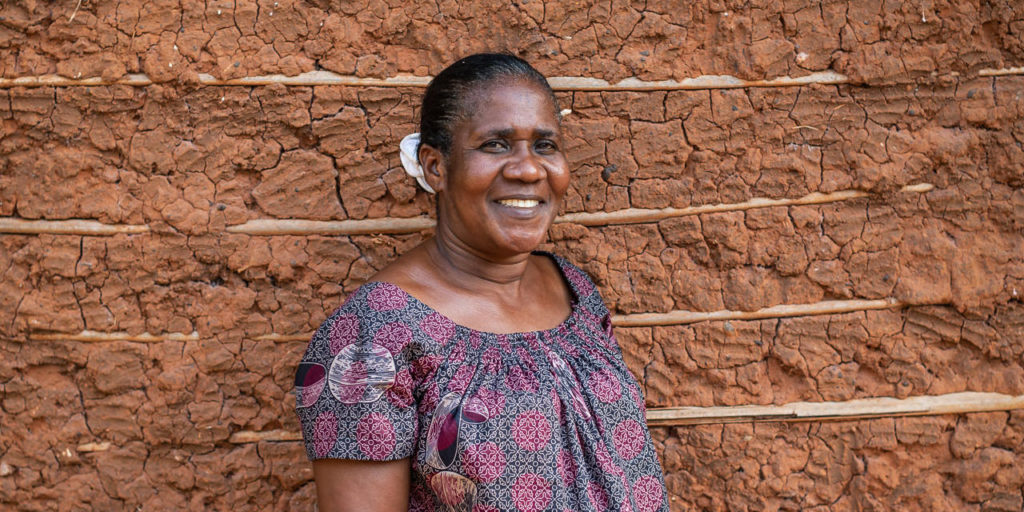We’re celebrating the cocoa farmers in West Africa who grow the beans for our chocolate by sharing their stories.
Chocolate is one of the world’s favourite snacks and readily available for shoppers at very little cost. Despite this, few people know the true story behind their chocolate bar.
90% of the world’s cocoa is grown on small family farms by about six million farmers who earn their living from growing and selling cocoa beans. The primary growing regions are Africa, Asia, and Latin America. Côte d’Ivoire and Ghana produce over 60% of the global cocoa supply.
Growing cocoa is an arduous task – cocoa is a delicate and sensitive crop, and farmers must protect trees from wind, sun, pests, and disease. With proper care, cocoa trees begin to yield pods at peak production levels by the fifth year, and they can continue at this level for 10 years. But for all this hard work, cocoa farmers gain very little from a very profitable global cocoa trade. Fairtrade is helping to make it more sustainable.
How does Fairtrade make things better?
Through Fairtrade cocoa sourcing, communities have seen benefits in areas close to our heart – this includes increased literacy among women and the development of business skills, as well as funds to invest in environmental initiatives, and giving women the tools to assert themselves as landowners.
The following case study comes from an inspiring Ivorian female farmer, Kouao Amah, who has flourished in the schemes set up by Fairtrade. Even in UK farming, women’s voices are not heard, so it’s important that women like Amah are able to tell their story.
Kouao Amah
Amah is the mother of five children and eleven grandchildren. As a producer and member of the SCAANIAS co-op in Côte d’Ivoire, Amah’s income comes from her seven hectare cocoa farm. She is also Vice-President of SCAANIAS’s Board of Directors.
Her participation in Fairtrade Africa’s Women’s School of Leadership means Amah has developed the ability to advocate for gender equality in her community and co-op, and always encourages women’s rights. Amah trained at the Women’s School of Leadership two years ago as part of Cohort 1 and didn’t know much about the school initially.
We were brought in like blind people. They told us we have value in ourselves, and the training was to unveil that value. I thought: I am uneducated, I didn’t go to school, how am I meant to start learning at my age? But they told me that doesn’t matter, just join anyway. So I went back to school at 60.
Amah attended the local primary school as a child, but didn’t progress to secondary school.
At the Women’s School of Leadership, farmers learn about budget management, but also Fairtrade Standards and how to effectively plan for the future, as well as how to invest their savings in bank accounts.
We learned about the law too, both human and child rights. I was astonished that women had rights, that they could attend meetings and make decisions. Men are seen as more powerful in society. I learned that women could take decisions as well as men.
After Amah finished her training, she held a family meeting where she told her sons how she expected them to behave from now on. To her eldest son who she had already given four hectares of land, she stressed to him the importance of taking care of his family.
Amah is currently responsible for her eleven grandchildren while her daughter attends school. Without her new found business skills, she would have found the situation difficult to manage. When their farm was deliberately burned down, thanks to her training, she was also confident enough to sue the culprit and won the court case.
Amah has set up an association in her village to give interest free loans to women and raise funds to support disadvantaged local people. Alongside owning her own poultry farm, she is also planning to set up a poultry project in the village, whereby each woman in the group contributes four chickens to start the business.
I could never have done that before. I was a shy woman who couldn’t speak up, but today I am very powerful. Now when I can’t make a meeting, they cancel it. I am training other women every week through community groups to share the knowledge I was empowered with.
Find out more about Fairtrade cocoa farmers’ fight for a living income
